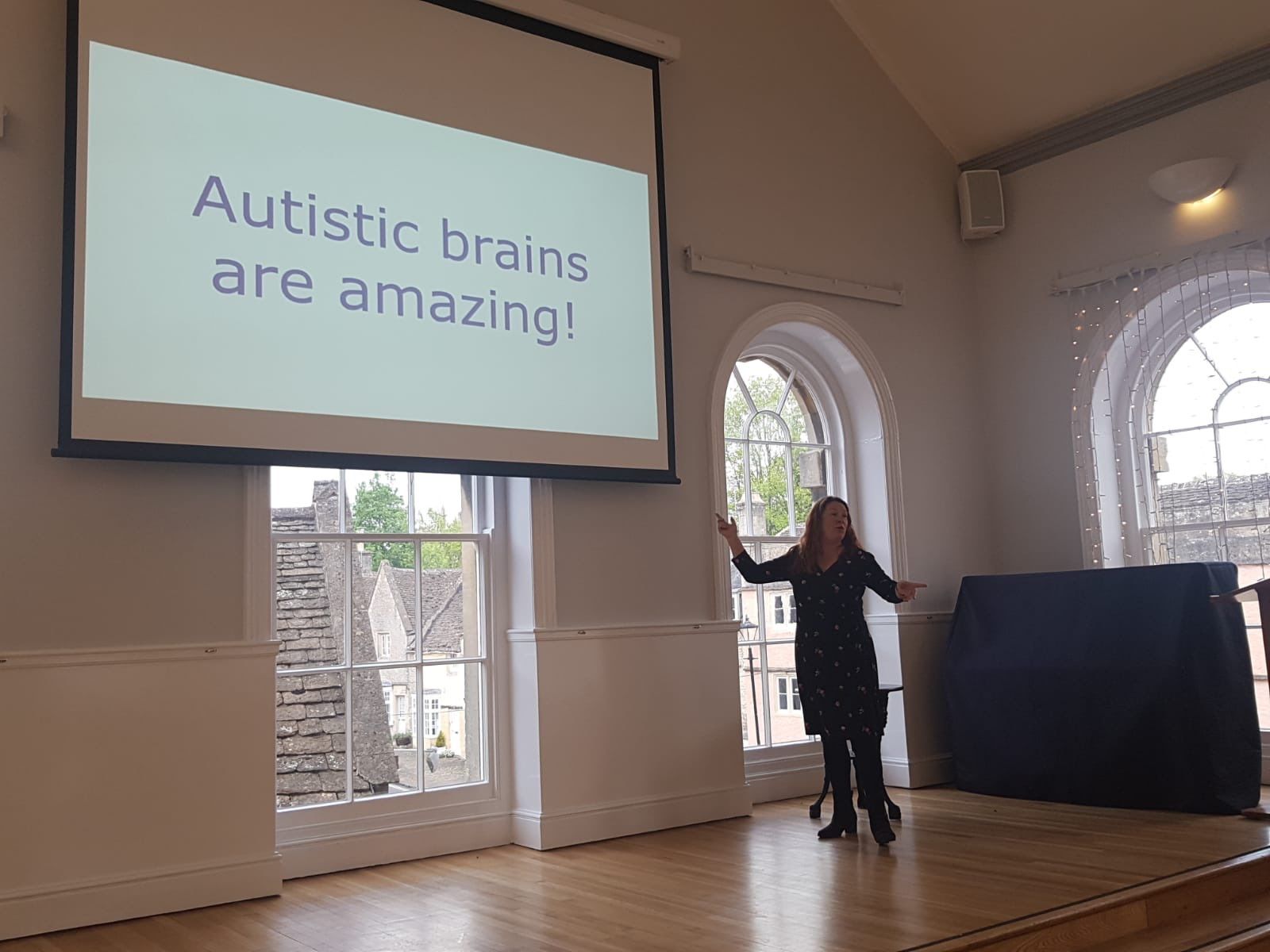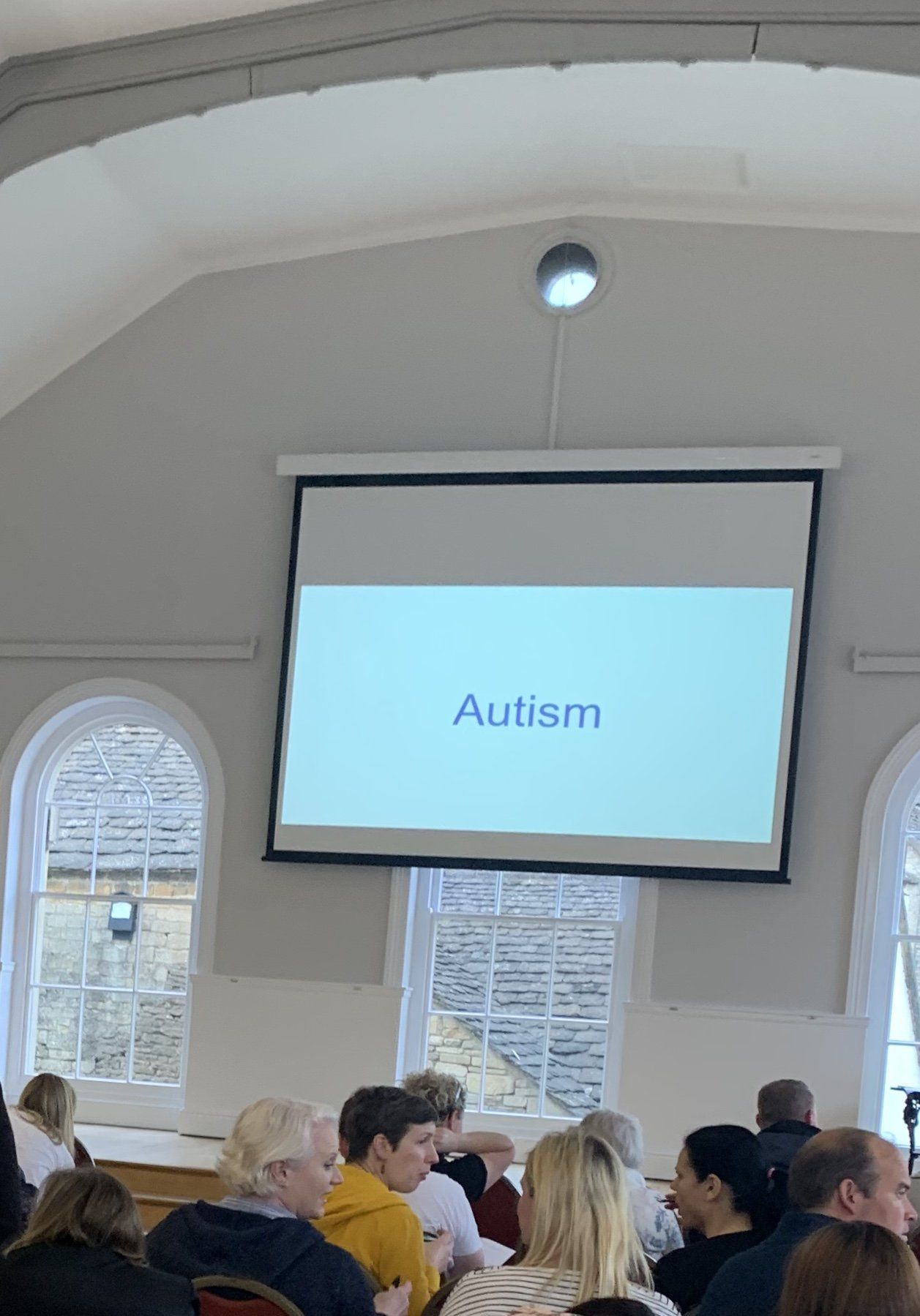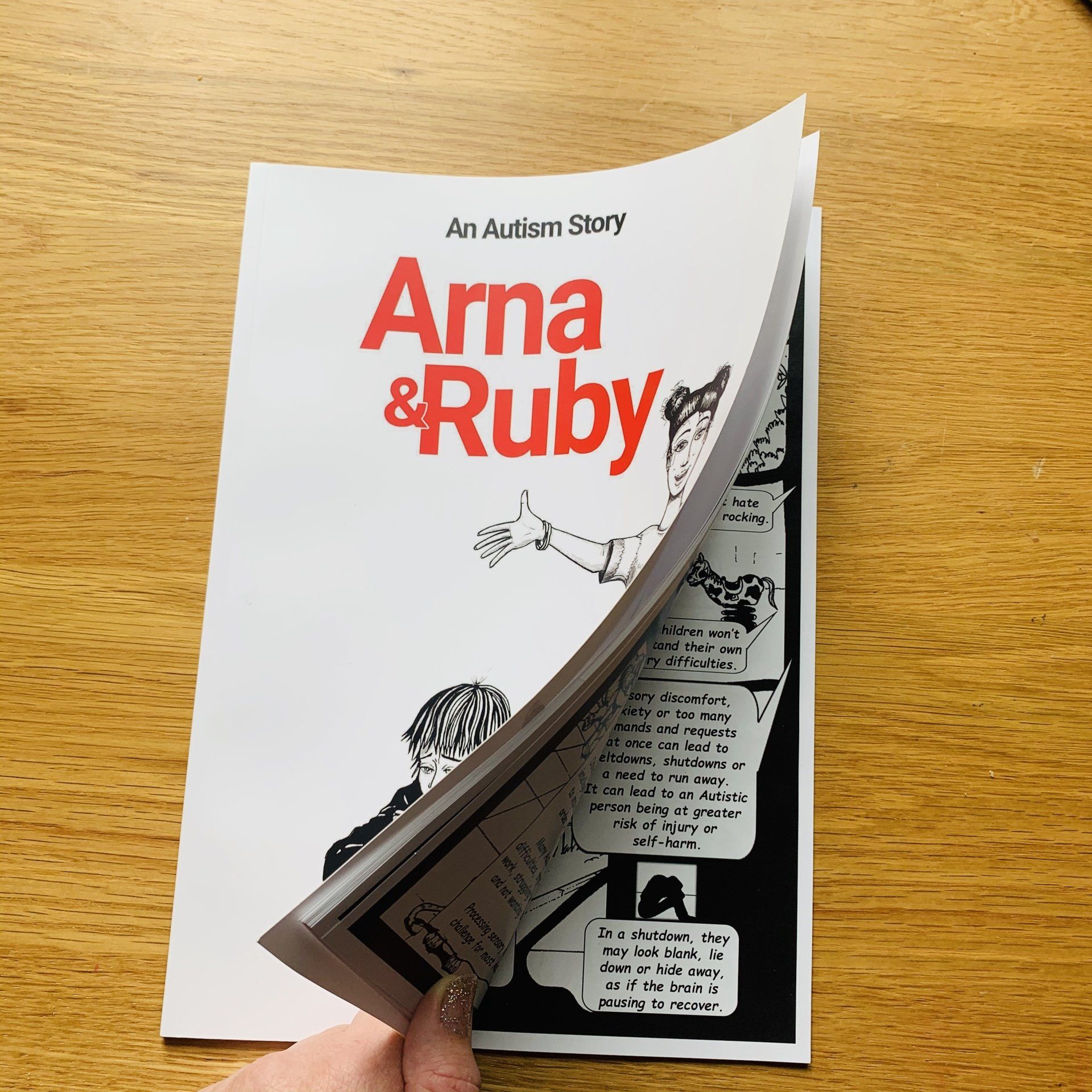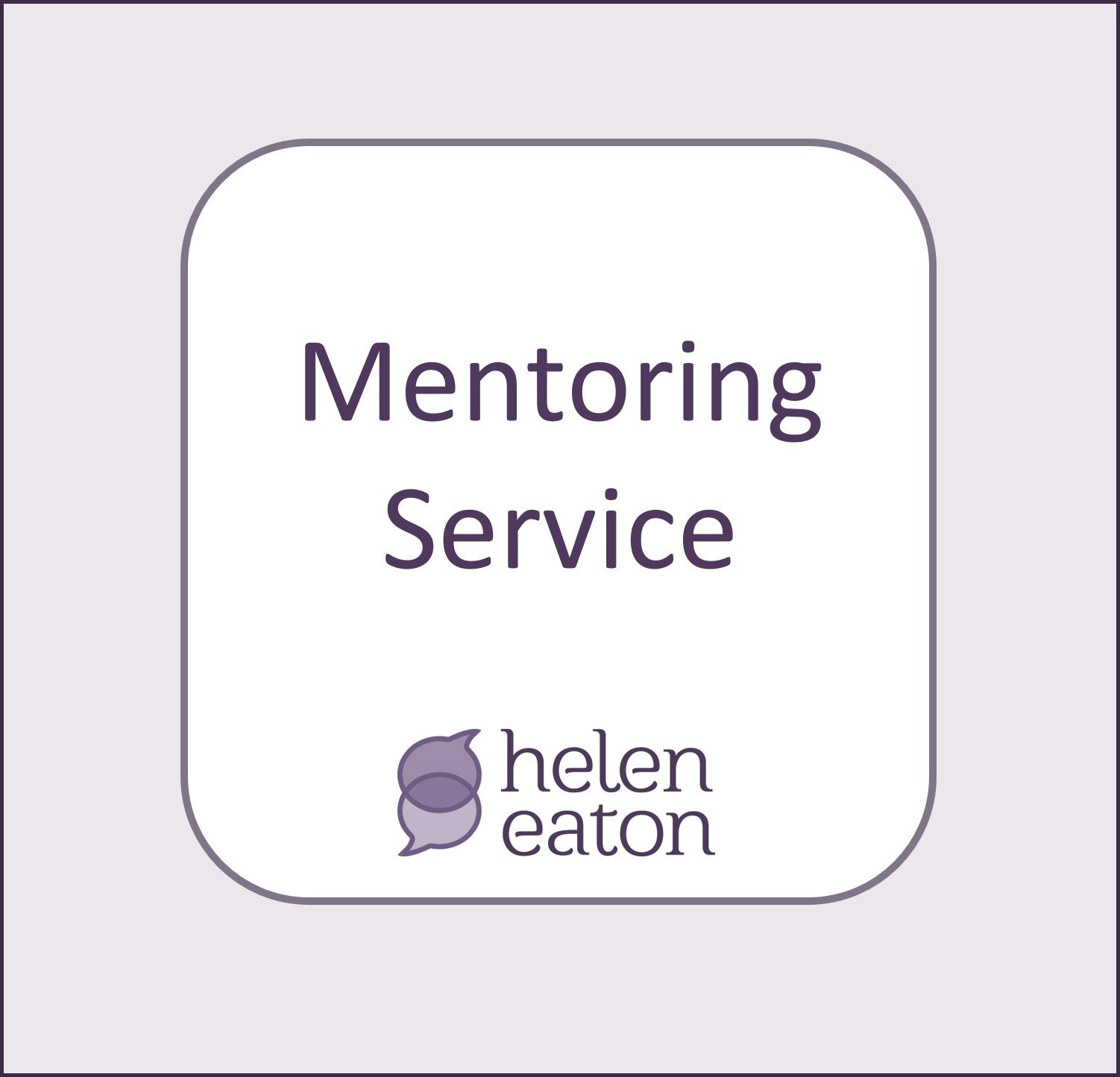Autism & Self-confidence
Helen Eaton • August 2, 2020
Autistic people and self-confidence
You can listen to the extended version of this article in a podcast , as part of the Helen Eaton - Autism & Neurodiversity podcast series.
Self-confidence
is about recognising our own worth, abilities and potential. It gives us the ability to do everyday things. To trust in ourselves. To try new things or keep on doing the same things.
I believe self-confidence is an issue for autistic people and is often more complex than for neurotypical / non autistic people due to the social and communication challenges involved.
For some Autistic people self-confidence may not factor so much in their lives. Perhaps they don’t have the cognitive ability to recognise or measure self-worth, or it simply doesn’t concern them. For the many autistic people who are functioning in day to day life with partial or full independence, self-confidence is an incredibly important thing to protect and develop.
If you have low levels of self-confidence,
you’ll stay in your comfort zone, and whilst that sounds very comfortable and a very nice place to be, it may become narrow and limiting. Comfort zones tend to shrink over time if a person doesn’t have the confidence to move out of them. Adding to that autistic people’s tendency for routines, perhaps opportunities and everyday tasks will be avoided. This may lead to more isolated lives, which in turn may lead to increased vulnerability and mental health issues.
If you have low levels of self-confidence, you’re likely to be constantly worried about mistakes and feel highly anxious. You might behave constantly to other people’s standards and expectations, feeling constantly judged, and often a failure.
You may mask, and so hide behind a fake version of yourself. I’ve seen autistic teens in particular adopt whole new looks – hair, makeup clothes, likes and ways of moving and speaking that aren’t naturally theirs in order to fit and meet other people’s standards . They weren’t confident enough to live as themselves. That’s exhausting and can only worsen a person’s self confidence in the long term.
I sent out a quick survey via social media, and whilst by no means scientific, the results were interesting, with responses from a wide range of people, including autistic adults and teens, parents, education and medical professionals.
In the survey 100 % agreed or strongly agreed that it is important for autistic people to have positive levels of self-confidence, and 80 % felt that Autistic people’s self-confidence is worse or much worse than non-autistic people. Communication, social skills and mental health in particular being the areas where self-confidence was reports as lowest.
Where does self confidence comes from?
Internally it’s from our own ability to see ourselves in a positive light. Being able to say I did that well, I’m good at that, what I did was good enough. It’s not all about winning, though, instead lots of small positive experiences build a strong framework of self-confidence.
I sometimes describe it as having an inner cheerleading squad. Whenever you’ve achieved something, be it passing an exam or remembering to post a birthday card, or remembering to untuck your skirt from your pants when you leave a coffee shop loo ( that one is very much for me), line that cheerleading squad up and let them cheer for you. You can pick your own cheerleading squad – mine occasionally contains the characters from superhero movies, all waving pompoms and cheering “Yay, Helen you did it”. The imaginary cheerleading squad is a way of reminding yourself to recognise your own strengths and abilities.
If we don’t spend time looking at the positives we can be overwhelmed by the negatives. The ability to view yourself positively might perhaps be a genetics thing, the way your brain is designed. But it’s definitely something we can work on and improve.
Self -confidence can also come from the people around you. If you’re constantly hearing critical messages you start to believe them, and they begin to shape who you are. There’s the unspoken stuff too – the stares, the tuts, the impatience when you take too long to do something, or don’t behave as expected.
People whose brains work in typical ways can struggle to understand, appreciate and support autistic behaviours, communication styles and general ways of being. That can really dent your confidence if the majority of people constantly signal or suggest that you are not doing it their way and therefore not doing it right.
In the survey I asked for experiences which had a real-life negative impact on an autistic person’s self-confidence.
Between 40% - 72% of people had experienced the following :
• Other people’s behaviour towards the autistic person
• School staff attitudes and opinions
• General public, family and colleagues’ attitudes and opinions on Autism
• Educational and local authority policies for Autism
• Difficulty accessing learning at school
• Family attitudes and opinions
• Social media and TV
Their personal stories shared carry very powerful messages:
“My son thinks he’s stupid because he’s not understood by his friends"
“Other people’s perceptions and expectations towards my son …. They often overlook him because he’s very quiet, and strongly lacks confidence in speaking with more than one person at a time.”
“My peers at school constantly make jokes about autistic people and talk about them very negatively . I constantly see hurtful comments on YouTube and negative portrayal in the media.”
“When given unclear instructions and then being told off for not doing the task.”
“.. at the end of job interviews when I’ve informed people about my autism they react as if I was about to wet myself.”
“Negatively affected by many years of constant poor interactions with school staff, and inadequate SEN provision which has resulted in always feeling left out of things / unable to be like everyone else or belonging.”
“Lots of media and public perception is very simplistic and can leave people diagnosed feeling they are less than normal rather than just a bit different with their own strengths.”
Improving self-confidence
Self-confidence is about trusting your own skills, knowledge and abilities. Firstly, you have to know what these are, and have the opportunity to use them. When you use them, you need to be able to recognise you’ve done well, and it helps if other people tell you too. Next time you will feel more secure and confident enough to do the thing again. And perhaps try something else new.
Regularly celebrate everything about yourself or your Autistic loved one. Your list could include being great at :
• Tying shoelaces
• Giving hugs
• Cooking pasta
• Creating new recipes
• Mowing the lawn
• Listening to friends
• Typing
• Dancing freely
• Taking photos
• Developing apps
• Running projects
• Making financial decisions
Create some challenges as achievements build self-confidence. If you don’t get there the first time, you’ll have learnt how to get there next time and that’s fine.
• Today I will walk 50 steps more than yesterday
• Today I will lean a new word
• Next week I will listen to one chapter of a new book
• Next month I will know how to boil eggs
Positive role models are key
– be they Autistic or not. There are some marvellous Autism advocates out there, and it’s good to see others celebrating differences and sharing their experiences.
Stop comparing yourself negatively to others.
You can aspire to learn the skills and knowledges of others, but it’s not healthy to compare yourself. Have a good look at the things you think you need to change about yourself. These things are limiting your self-confidence and very often are just in your own mind, not genuine barriers to success. I give some examples of this in the podcast.
You can reframe and rewrite negative messages
rather than let them hinder you or lower your self-confidence. That can be very hard when a negative message comes from someone you love and trust – it is still doable. An example is recognising what has been said is through their perspective or worries and not relevant to you. You may recognise that was something said with good intent but poorly delivered and so should not be worried about.
If you are the partner, family member or carer of an autistic person ensure you’re not transferring your confidence issues onto them. The things that worry you, the social pressures you feel, the mistakes you don’t want them to make in case they’re judged by others .… things that may not be relevant to them .
Limit social media use
and go beyond just taking a day off from twitter. Validating yourself through likes, comments and shares is proving to be very unhealthy with lots of research and real-life stories out there to support this.
These suggestions are a starting point for autistic people to rethink self-confidence and perhaps make some positive changes.
Please remember I am a trainer and public speaker, and so recommend that you always seek professional medical advice and support if you are concerned about yourself or another person.
'Arna & Ruby - An Autism Story' is an excellent graphic novel learning resource for older children, teens and adults and is available to buy now

Hello I hope you are well and safe, and your plans for the Christmas break are not proving too stressful. It may be a very different end to the year than you would have wished for, but I hope you can all find joy in this festive season. As we get closer to Christmas it’s worth remembering not everyone experiences the festive season in the same way. If you have an autistic family member or if you are autistic: • work together to embrace everyone’s needs • give and take is important - spend some time doing what somebody else wants, and they can do the same for you • explain what’s happening - include why, when, where and how long it will last • not everyone loves a surprise - presents can be planned and bought together • prepare for quiet and calm times before and after excitement • don’t put pressure on yourself to achieve ‘Christmas goals’ • small moments of joy are better than a day packed with expectations and disappointments Best wishes to you all xxx

Hello I hope you are well during these difficult times. June is a beautiful month and I'm enjoying looking at all of the glorious roses in bloom on my walks. The flower photo at the top of this email was chosen by my lovely Facebook followers. It's in my garden, although I have been know to stop by other people's gardens and take photos of their flowers too! In this month's newsletter I offer some tips for managing uncertainty. Sadly, I'm currently seeing that lots of Autistic people are really struggling with the uncertainty of the Covid-19 situation. Autism and uncertainty also features in my latest podcast. You can listen on iTunes and Soundcloud. Don't forget to follow me, share and rate me on these apps, as it all helps other people find them. Click on the buttons at the very bottom of this page to find my social media links. Top tips for dealing with uncertainty - Whenever there’s uncertainty try saying “it may be different but it could also be okay. It might even be better.” - Avoid catastrophising (presuming the very worst). Take your thoughts down a different and more pleasant path. - If you’re struggling take each day at a time. Live through that day, and do things rather than worry about things. - Think about what you can control and influence. There are lots of great books and resources out there on circles of influence and control. For example I know I can’t control Covid-19. What I can control and influence is sensible hygiene practices in my home, and the choices I make about socialising. - Don’t fill in your own blanks where there’s uncertainty – get accurate and reliable information. Try and balance that with not obsessing over news story and the latest lists of Covid-19 statistics. - Always seek professional help if your fears and anxieties are overwhelming you to the point that you are struggling more than usual. In my new book, Arna struggles with the uncertainty of school and becomes overwhelmed with anxiety, which explodes into anger. 'Arna and Ruby - An Autism' story can be ordered on my this website's shop page and on Amazon. It's a graphic novel and a fully illustrated guide to Autism, perfect for older children, teens and adults. I hope you stay safe and well. Regards Helen

Hello I hope you are well and staying safe. This newsletter includes some top tips for home schooling Autistic children. Being at home means I've been able to focus on my 'Arna and Ruby - An Autism Story' graphic novel launch and releasing my first podcasts. This is all in between homeschooling 3 teenagers, walking 2 dogs and practising some Spanish grammar (one of my hobbies!). This beautifully illustrated and informative book is for sale on my website, where you can also listen to the podcasts for free. The first podcast is a lovely introduction to Autism and the second is about social anxiety and social expectations. Top Tips for Autistic children learning at home (great for all children too! ) - Remember you are not your child's teacher. Learning is more than just doing it the right way or getting it right the first time. It's about exploring, testing and trying new ideas. - It's better that the school sees your child's efforts, and sees where they're struggling, rather than helping them submit perfection - Prioritise the subjects that are important for your child, and don't try and achieve everything. - Create a loose structure if you can to the day, e.g. schoolwork is between 10am - 2pm. This means there's some flexibility to the day if needed. - Encourage lots of short regular breaks, every 30 - 40 minutes or so - Timers, small chunks of work and check lists can help them stay focussed. - Don't battle over the things that don't matter. Learning skills and useful facts can be done anywhere, anytime and in any clothes ( even PJs). It's all about making your child feel comfortable and safe enough to learn. - Now's a great time for new and old special interests. Expand what they can learn beyond the school curriculum, and follow any interests in as much detail as they want. - Make something - a scrapbook, blog, website or photo album of the things they've learned, as a record of achievement. - Celebrate every success no matter how small! - Don't forget some fun stuff too! Do the things they like doing together, and share what you're doing too. Best wishes and take care

Hello Welcome to February's Autism newsletter I'll be sharing my news, reminding you to book onto the half-term Autism & Families Talk, and asking for your help. There's a few top tips about socialising, and you can access even more helpful information on my newly updated website. News On the 19th February I will be running another 90 minute Autism & Asperger's Family session in Chippenham. This is a great way to learn more about Autism and parents, carers, relatives and friends are all welcome. Book tickets online and children can attend for free with an adult ticket. It's also a chance to meet other families with similar experiences and full details are at the end of this newsletter. This Spring I'll be returning to Wiltshire Wildlife Trust's care farm to deliver staff training. I'll also be running a session for Doorway, who provide drop-in services for homeless and marginalised adults. I'm looking forwards to delivering the Neurodiversity in the Workplace training for QA Ltd in London and Manchester. I developed this course for QA and it'll be great to see how managers and team leaders respond. I'm also still attending the Wiltshire Autism Board meetings, which help shape Autism services across the county. As I'm so passionate about excellent provision I do tend to challenge the ideas and reports presented, but I'm pleased to see progress is starting to be made. Services I offer talks, public event speaking, workplace training and school visits. My updated website www.heleneaton.co.uk details the services I offer. I can bring Autism to life with an enjoyable and informative talk or training session. I'd appreciate your help this month. I'm looking into providing a teens Autism social group - it may be challenging but hopefully exciting to set-up. If you have any experience in this area please let me know. What sort of services and information do you need? What would you like to see on my website? Would Autism mentoring sessions help you, with online chats to help you support an autistic person at home? Get in touch … info@heleneaton.co.uk Socialising There's lots of useful information on my website, and I thought you might appreciate a few tips. We can make it easier for Autistic children to socialise : · explain what is happening, how long it will last and how it will end, e.g. a party · build in an ‘escape plan’ - it may not be needed but it’s reassuring to know it’s there · let them play freely at their own pace in their own way, avoiding being overly critical · build in opportunities to learn about sharing, turn taking and asking people for things – all useful life skills · allow time to rest and recover after social activities · actively celebrate success - if an Autistic child realises something went well, and they feel good about it, they are more likely to try it or something else new · remember that what is fun for us isn’t necessarily fun for someone else. We all have different versions of fun. · finding a balance - enough socialising to feel wanted, loved and able to enjoy time with other people, but not too much so that they feel overwhelmed or panicked Please share this newsletter, let others know about my website and follow me on social media - it's always much appreciated! Helen

Specific Learning Difficulties include: Dyslexia Dyspraxia Dyscalculia Dysgraphia Attention Deficit Hyperactivity Disorder (ADHD) SLDs affect learning and the way information is processed by the brain. They are different to ‘Learning Difficulties’ as intelligence is not affected and there is an identifiable and very specific difficulty They are often described as hidden disabilities and may go undiagnosed and unsupported. Constantly struggling in school or work can lead to tiredness, low self-esteem and anxiety. Extra effort and energy is need to complete everyday tasks and this can be exhausting. This may cause people to avoid important or difficult things, making it much harder to catch up. With the right support and learning people with SLDs can achieve great things, as they often have a wonderfully different way of seeing and thinking about the world. ADHD A behavioural condition that makes it hard to concentrate and control energy, actions and decisions. Caused by a chemical imbalance, the symptoms may be relived through medication. This can lead to hyperactivity, impulsiveness and risk taking. Professional advice for prescriptions must always be sought, as there are side effects and the doses must be correctly calculated and monitored. Dyslexia Difficulties with the range of skills needed for reading and spelling, along with verbal memory and processing. Specific tuition can help with techniques to help, and these strategies can provide lifelong help. Dysgraphia A difficulty with the physical act of writing which may also be painful. Dyspraxia A development disorder which affects fine and gross motor skills, which are needed for everyday tasks and movements. Physical exercises can help improve skills and co-ordination. Dyscalculia This means that people may struggle to understand maths, patterns, time and measurement. Again additional support and tuition may help develop these skills.

Autism is a developmental condition which means the brain develops differently, causing a person to experience and process the world differently to a typical person. An Autistic person may struggle with: - Social communication, e.g. recognising facial expressions and body language - Social interaction - Understanding social rules, behaviour, and adjusting for different social settings - Strong need for fixed routines, specific interests and hobbies - Recognising and managing emotions - Building and maintaining relationships - Difficulties processing sensory information - Changes, transitions and new places The world is very loud, colourful and demanding of all of our senses. There are lots of social expectations and interactions which can be confusing. Everyday life can be very stressful and overwhelming for Autistic people, who experience the world in a different way to non-Autistic people. Understanding and acceptance of differences is key to success, along with effective support strategies and adjustments. There are 3 levels of Autism diagnosis, depending on the level of support required and how much daily functioning is impacted. Many Autistic people have full and successful lives and careers. The world benefits greatly from Autistic thinkers as they’re often creative, innovative and great problem solvers. The don't always work to the usual social and logic boundaries, often challenging 'normal' thinking and rules. A diagnosis of Autism is given by observing behaviours and asking questions. If a child behaves with a mix of social and communication difficulties, routine or ritualistic behaviours and sensory difficulties it suggests the brain is developing in a way that is defined as Autistic. It is also true that some Autistic people may need care throughout their lives because they also have additional disabilities and learning difficulties. Asperger's Syndrome was the name given to a specific type of Autism until just a few years ago, and is now known as High Functioning Autism These Autistic have average or above average intelligence and are viewed as ‘high-functioning’ although they still experience the same difficulties as other Autistic people. Pathological Demand Avoidance (PDA) is a type of behaviour within Autism, although currently rarely formally diagnosed. Anxiety may cause those with PDA to avoid every day requests to an extreme degree, and they may appear controlling and difficult as they struggle to respond to expectations and demands.

Hello In this newsletter I'll share some Autism statistics that might surprise you, let you know what I've been up to, what's coming soon, along with some information about me. There's a good chance you haven't yet met me, and so an introduction and explanation about what I do and why I do it might be helpful. Autism Top Tip = Keep It Visual! By this I mean it's easy for an Autistic person to become distracted or overloaded by everything that's going on them. Using anything visual - photos, videos, icons, diagrams - is a great way of sharing information and instructions. Visuals are also consistent, long-lasting and have a low sensory impact (they don't talk back!). So remember to don't just say it - show it! I take photos of everything I need to remember, so I can look back on them in my own time. I actually find photography very calming and enjoyable, and always use my own images on my website and emails. Nature's colours at this time of year are spectacular. Why is understanding Autism important? There is clear statistical evidence that understanding Autism is incredibly important, based on the number of Autistic people, the lack of knowledge in recognising and supporting autism, and the lengthy impact of long delays in receiving a diagnosis. It's important to know that after diagnosis many families are waved away from the consultant with simply a few information leaflets and no further support. If we all increased our knowledge and understanding of Autism, hundreds of thousands of lives could be improved in the UK. In the UK there are around 100,000 children diagnosed as Autistic, with many more still undiagnosed due to a number of factors, (including reluctance, mis-diagnosis, lack of knowledge). Around 70% of Autistic children are in mainstream education. In England the average waiting time to start diagnostic assessments was 4 months in 2016, with the longest waiting time in 2017 being 26 months. (British Medical Association) The time taken to actually issue a diagnosis is significantly longer. Research suggests less than 16% of Autistic people are in employment, are often overqualified and over skilled for the roles that they’re in. My own experience has shown me that many schools don’t fully understand the needs of Autistic children, leading to high levels of distress in the classroom, exclusion, and families choosing to home educate. Who am I? The most important things to say is that I live and breathe Neurodiversity every single day. None of my family think or process the world in a typical way, and I can trace Autistic traits, Dyslexia, and more throughout my family tree. I’ve spent the last 15+ years delivering leadership and business skills training to some of the UK’s leading finance and technology companies. In 2011 I gained a Post Grad qualification in Primary teaching. After one of my own children was diagnosed as Autistic, I then began to specialise in Autism. For 18 months I worked as a trainer for a leading Autism social enterprise, delivering webinars and workshops across the South West. During that time I was very privileged to be a guest on Michael Rosen’s BBC Radio 4 Word of Mouth show, talking about Autism and communication and I have spoken at a NAS Conference on Autism and socialising. I went on to launch my own Autism business in 2018. What do I offer? Workplace training on Autism and SLDs School staff training Assemblies and classroom talks Public speaking for groups, events and conferences Leadership and Business skills training incorporating Neurodiversity Total SDI™ profiliing, team building and conflict skills Why do I do what I do? Nothing can replicate the wonderful feeling I get when I hear that the work I’ve done has made a positive difference to a family or individual. I also love walking out of a classroom or training room knowing that I have increased knowledge and understanding. I also work to dispel the myth that we are all a little bit Autistic. We are not. Autistic traits are human traits that we all recognise, but for Autistic people they can be present to such an extreme degree that some everyday tasks become impossible. Thinking differently has led to my own life successes and I see the same in my children. I want to help develop opportunities for Autistic people to live and work to their potential, and remove the unnecessary barriers society puts in place. The smallest of changes can make the greatest of differences. I currently don’t receive any funding or grants for the work that I do, and so charge a fee for my services. I also continue with my leadership training work, as that offers lots of exciting opportunities for me to develop my skills even further. Here are some of the topics I talk and write about: Autism in adults and children Sensory needs Autism and education Autism in girls and women ADHD, Dyslexia, Dyspraxia, Dysgraphia, Dyscalculia Self-care, staying organised and developing healthy routines Developing emotional awareness and managing emotions Managing stress, anxiety and meltdowns Friendships, relationships and social understanding Challenging behaviour and support strategies Please do get in touch if you would like more information or have any questions.

Hello and welcome to this October Autism Newsletter, featuring details of the new Chippenham support group. The majority of Autism support and information is found online with some great Facebook groups and Twitter feeds, but nothing seems to be beat face-to face conversations and real group support. Which is why we're launching a new support group this week in Chippenham! Please share the poster below. Thursdays 8:00-9:30 pm, Citadel Hall, Chippenham It's more than just a coffee and a chat (although that's a part of it too!). There'll be short talks on a range of topics, and we can chat about advice and support in a comfortable environment. It's a great chance to share experiences and find solutions with other parents and be supported by an Autism specialist. At the end of September I delivered a talk to the North Wilts Girl Guiding group and am working with a large primary school to deliver two assemblies about Autism. The training course I've written with a leading training provider should be available soon to book, it's just going through the final exciting design stages. Remember I offer a range of talks and training, so have a look through my website. Regards Helen Eaton


